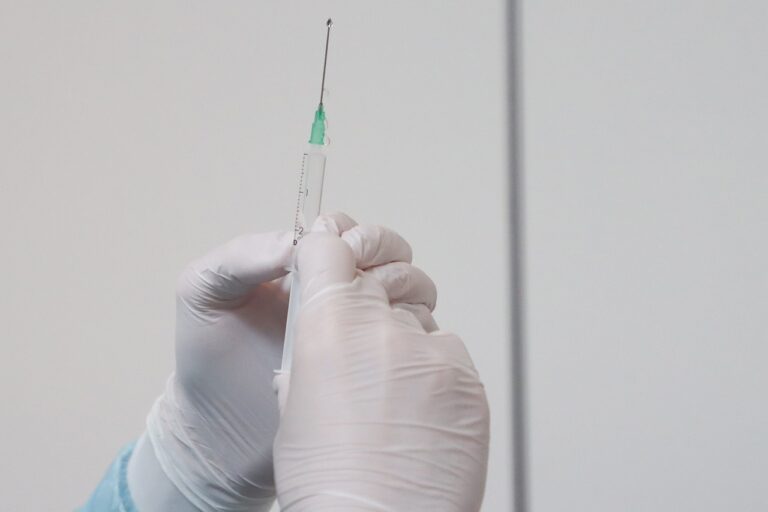Antibiotic Resistance: A Growing Concern in Public Health
Antibiotics are a crucial class of medications used to treat bacterial infections in humans and animals. They work by either killing the bacteria or inhibiting their growth. Penicillin, one of the first antibiotics discovered by Alexander Fleming in 1928, revolutionized the field of medicine and has since paved the way for the development of numerous other antibiotics.
These medications are prescribed by healthcare providers to combat various bacterial infections such as pneumonia, urinary tract infections, and skin infections. It is important to note that antibiotics are not effective against viral infections like the common cold or flu. Overuse and misuse of these medications contribute to the development of antibiotic resistance, a concerning global health issue that threatens our ability to treat bacterial infections effectively.
• Antibiotics are essential for treating bacterial infections in both humans and animals
• They work by either killing bacteria or inhibiting their growth
• Penicillin, discovered in 1928, was the first antibiotic and paved the way for many others
• Common bacterial infections treated with antibiotics include pneumonia, UTIs, and skin infections
• Antibiotics do not work against viral infections such as the common cold or flu
• Overuse and misuse of antibiotics can lead to antibiotic resistance
Impact on Public Health
Over the past decades, the widespread use and misuse of antibiotics have contributed significantly to the emergence of antibiotic resistance, posing a severe threat to public health worldwide. Antibiotic-resistant infections are becoming increasingly common, leading to prolonged illnesses, higher healthcare costs, and elevated mortality rates. As a result, the effectiveness of antibiotics in treating bacterial infections is diminishing, making it harder to combat diseases and putting vulnerable populations, such as the elderly and immunocompromised individuals, at greater risk.
Moreover, the rise of antibiotic-resistant bacteria has the potential to compromise routine medical procedures and undermine the success of surgeries, chemotherapy, and organ transplants. Infections that were once easily treatable with antibiotics may now require more aggressive treatments, further straining healthcare systems and resources. The escalating prevalence of antibiotic resistance underscores the urgent need for concerted efforts to promote responsible antibiotic use, develop alternative treatment strategies, and raise awareness about the serious repercussions of antimicrobial resistance on public health.
Causes of Antibiotic Resistance
Antibiotic resistance arises when bacteria evolve to withstand the effects of antibiotics, rendering the drugs ineffective in treating infections. One of the key contributors to this phenomenon is the overuse and misuse of antibiotics in both human and animal healthcare. Inappropriate prescribing of antibiotics for viral infections, which are unaffected by antibiotics, and patients not completing their full course of antibiotics are common practices that fuel resistance development.
Moreover, the use of antibiotics in agriculture, particularly as growth promoters in livestock, also plays a significant role in the emergence of resistance. The transfer of resistant bacteria from animals to humans through consumption of contaminated food products can further exacerbate the problem. Inadequate infection prevention and control measures in healthcare settings can facilitate the spread of resistant bacteria, leading to difficult-to-treat infections and increased healthcare costs.
What are antibiotics?
Antibiotics are medicines used to treat bacterial infections by killing or inhibiting the growth of bacteria.
How do antibiotics impact public health?
Antibiotics have greatly improved public health by treating bacterial infections and reducing mortality rates. However, misuse and overuse of antibiotics can lead to antibiotic resistance, which poses a significant threat to public health.
What are some of the causes of antibiotic resistance?
Some common causes of antibiotic resistance include overprescribing of antibiotics, improper use of antibiotics, not completing the full course of antibiotics, and use of antibiotics in livestock and agriculture.
Why is antibiotic resistance a concern?
Antibiotic resistance makes it more difficult to treat bacterial infections, leading to longer illness, increased healthcare costs, and in some cases, death. It also hinders the effectiveness of antibiotics in the future.
How can we combat antibiotic resistance?
To combat antibiotic resistance, it is important to use antibiotics responsibly, follow healthcare provider’s instructions when taking antibiotics, and practice good hygiene to prevent infections. Additionally, researchers are working on developing new antibiotics and alternative treatments.







